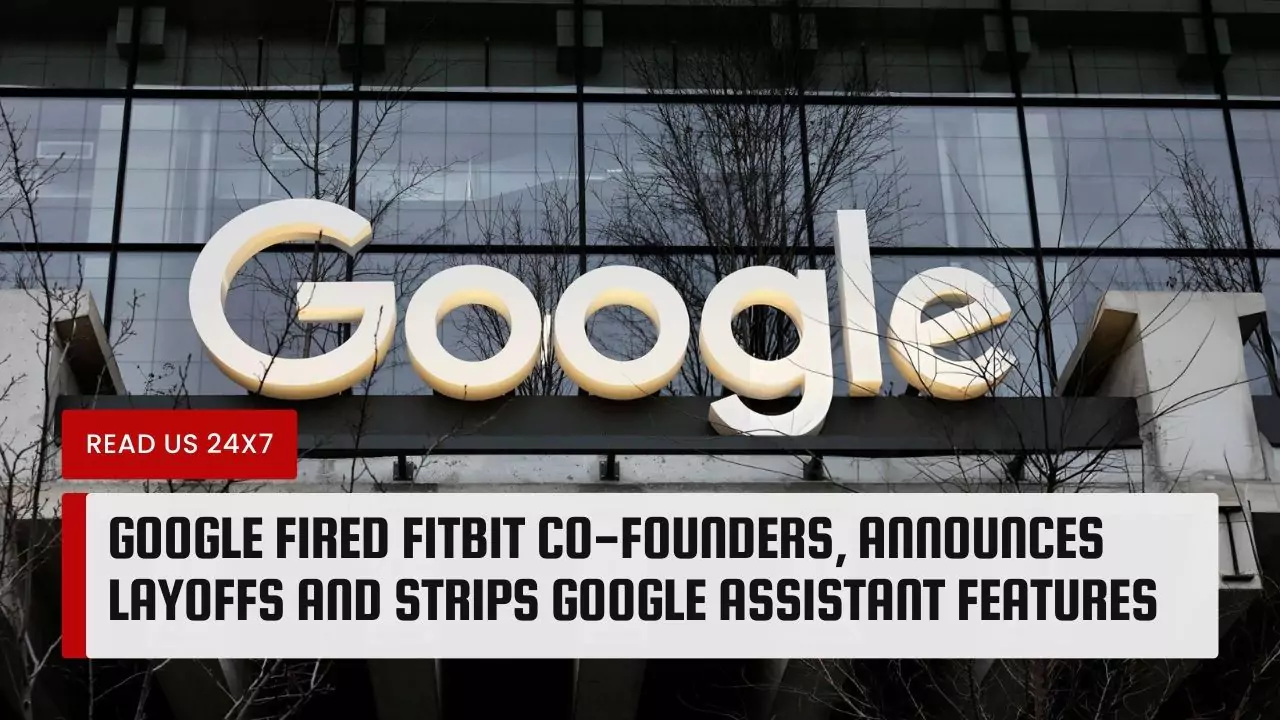Google has recently announced a major restructuring of its Devices & Services division, which oversees products such as Pixel, Nest, and Fitbit. The reorganization will result in layoffs for several hundred roles within the division, primarily affecting the first-party augmented reality (AR) hardware team. Some Fitbit leaders, including co-founders James Park and Eric Friedman, are also departing the company. This move comes as Google is facing an economic slowdown and increasing competition in the wearable and voice assistant markets.
Google’s Layoffs and Stripped Features
Google has recently announced layoffs affecting “hundreds” of employees across various divisions, including core engineering, the Google Assistant, and the hardware division. This move is part of Google’s ongoing efforts to cut costs, marking a significant departure from its previous practices of rarely laying off workers.
The hardware cuts particularly impact a team working on augmented reality (AR), raising eyebrows as AR is expected to be a key focus for the company in the coming year. Additionally, Fitbit, which is under Google’s umbrella, experienced significant losses with co-founders and other leaders departing.
This trend of layoffs at Google started in January of the previous year, with 12,000 layoffs announced, and has continued throughout the year across different Alphabet companies. There are also rumors of further layoffs in the current month, with a focus on the ad sales division.
In tandem with the layoffs, Google is making changes to its voice assistant, Google Assistant. A blog post outlines 17 features that will be removed, citing them as “underutilized.” The most notable change is the removal of the Google Assistant’s premium, default spot on the homepage of all Android devices. Instead, users will need to use alternative methods like saying “Hey Google” or long-pressing the home button.
This shift highlights the ongoing decline of Google Assistant, once considered the future of the company. The removal of features like messaging within family groups, voice support for Google Play Books, and control of activities on Fitbit devices further emphasizes this trend. Google’s decision to strip the Assistant’s prominence on Android home screens adds to the perception that a significant overhaul is underway, potentially with the introduction of a new voice assistant called “Pixie”.
Impact on Google Assistant
The removal of these features will affect the functionality and user experience of Google Assistant on many devices. Users who rely on these features will have to switch to alternative methods or platforms, such as using their phone’s native apps or other voice assistants, such as Amazon’s Alexa or Apple’s Siri.
The timing of the layoffs and feature removal also raises questions about Google’s commitment and strategy for its voice assistant and wearable products. Google has been facing stiff competition from other tech giants, such as Amazon, Apple, and Samsung, in these markets. Google has also been struggling to keep up with the innovation and adoption of generative artificial intelligence (AI) technology, which enables more natural and conversational interactions with voice assistants.
The departure of Fitbit leaders, especially co-founders James Park and Eric Friedman, also signals the end of Fitbit as an independent brand and product line. Google acquired Fitbit in January 2021 for $2.1 billion, hoping to leverage its expertise and user base in the fitness and health tracking market. However, Google has not been able to integrate Fitbit’s products and services with its own ecosystem and has instead continued to roll out its own Pixel watch, which competes with Fitbit and Apple watch.
Fitbit users have also experienced several issues and outages with Fitbit’s servers, disrupting their data syncing and access. In some countries, Google has even stopped selling Fitbit products, indicating a lack of interest and support for the brand.
Google’s latest moves suggest that the company is undergoing a major transformation in its Devices & Services division, and is focusing on its core products and features. However, it remains to be seen how these changes will affect the future of Google Assistant and Fitbit, and whether Google can regain its competitive edge and user loyalty in the voice assistant and wearable markets.


